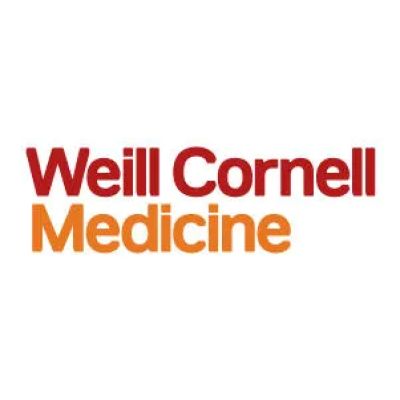How to Lower Your Risk of Heart Disease: Effective Strategies for Prevention
- Understanding Heart Disease
- Lifestyle Changes to Prevent Heart Disease
- Healthy Eating Habits
- Importance of Regular Exercise
- Managing Stress for Heart Health
- Importance of Regular Health Checkups
- Quitting Smoking and Limiting Alcohol
- Getting Help for Heart Disease Prevention
1. Understanding Heart Disease
Heart disease remains one of the leading causes of death worldwide, particularly in developed countries. Understanding how heart disease develops is essential for recognizing the importance of prevention. Essentially, heart disease refers to a group of conditions that affect the heart’s ability to function properly, including coronary artery disease, heart attacks, and heart failure.
One of the primary causes of heart disease is atherosclerosis, which occurs when plaque builds up in the arteries, narrowing and hardening them. This restricts blood flow to vital organs, including the heart, leading to serious complications. While factors like genetics and age play a role in heart disease risk, lifestyle choices have a significant impact on heart health.
In this article, we’ll explore various methods to lower your risk of heart disease, including making lifestyle adjustments, improving eating habits, exercising regularly, and seeking medical advice. These strategies not only help lower your risk but can also enhance your overall well-being.

2. Lifestyle Changes to Prevent Heart Disease
Making changes to your daily habits is one of the most effective ways to lower your risk of heart disease. Simple yet impactful lifestyle changes can reduce your chances of developing heart conditions. For example, maintaining a healthy weight, reducing stress levels, and getting enough sleep are key factors in improving heart health.
Many people underestimate the impact that stress has on heart disease. Chronic stress can lead to increased blood pressure and higher cholesterol levels, which in turn contribute to heart disease. Therefore, stress management practices, such as yoga, meditation, or engaging in hobbies, can significantly reduce heart health risks.
Atlanta Heart Specialists
atlanta heart specialists
4375 Johns Creek Pkwy #350, Suwanee, GA 30024, USA

3. Healthy Eating Habits
A healthy diet plays a vital role in preventing heart disease. Eating a balanced diet rich in fruits, vegetables, whole grains, lean proteins, and healthy fats can lower the risk of heart disease significantly. Foods like leafy greens, berries, nuts, and fatty fish provide antioxidants and omega-3 fatty acids, which help protect the heart.
Conversely, it’s essential to limit foods that can contribute to heart disease, such as trans fats, saturated fats, and high-sodium foods. Reducing your intake of processed foods, sugary drinks, and red meat can help maintain healthy blood pressure and cholesterol levels.
Additionally, monitoring portion sizes and calorie intake is crucial to avoid overeating. Studies show that weight management is one of the most effective ways to lower the risk of heart disease, and a healthy diet is the foundation for achieving and maintaining a healthy weight.
4. Importance of Regular Exercise
Exercise is another powerful tool in reducing heart disease risk. Engaging in regular physical activity strengthens the heart, improves circulation, and helps maintain a healthy weight. It is recommended to aim for at least 150 minutes of moderate aerobic activity, such as brisk walking or cycling, per week.
Exercise helps to lower blood pressure, reduce cholesterol levels, and manage weight—three crucial factors in preventing heart disease. In addition to aerobic exercise, incorporating strength training exercises into your routine can improve muscle mass, which further supports overall heart health.
5. Managing Stress for Heart Health
Chronic stress is a major contributor to heart disease, and finding effective ways to manage stress is key to heart disease prevention. When you’re stressed, your body releases stress hormones like cortisol, which can increase heart rate and blood pressure. Over time, this can damage the blood vessels and increase the risk of developing heart disease.
Effective stress management techniques include relaxation exercises, deep breathing, meditation, and spending time in nature. It’s also important to identify and address the sources of stress in your life, whether it be work, relationships, or financial concerns. Learning how to manage stress not only improves your heart health but also contributes to better mental health overall.
6. Importance of Regular Health Checkups
Regular health checkups are an essential part of preventing heart disease. Monitoring your blood pressure, cholesterol levels, and blood sugar is important for detecting early signs of heart disease. These factors are often referred to as "silent killers" because they can develop without obvious symptoms.
Routine checkups with your healthcare provider allow you to monitor these risk factors and make necessary adjustments to your lifestyle. If heart disease runs in your family, regular checkups become even more important for early detection and intervention.
7. Quitting Smoking and Limiting Alcohol
Smoking is one of the leading causes of heart disease, as it damages blood vessels, increases blood pressure, and raises cholesterol levels. Quitting smoking is one of the most important steps you can take to protect your heart and reduce your risk of cardiovascular disease.
In addition, limiting alcohol consumption can also lower your risk. Excessive drinking can lead to high blood pressure, irregular heartbeats, and other heart-related issues. If you choose to drink, moderation is key.
8. Getting Help for Heart Disease Prevention
While lifestyle changes are crucial, some people may require medical assistance in lowering their risk of heart disease. Working with a healthcare provider can help you manage underlying conditions like high blood pressure, diabetes, and high cholesterol.
Additionally, medications may be necessary for some individuals to control heart disease risk factors. Your healthcare provider can guide you in making informed decisions about medications and lifestyle changes that work best for you.
If you’re ready to take control of your heart health, consider seeking professional advice and incorporating the strategies discussed here to lower your risk of heart disease.





















Deborah Heart and Lung Center
deborah heart and lung center
200 Trenton Rd, Browns Mills, NJ 08015, USA